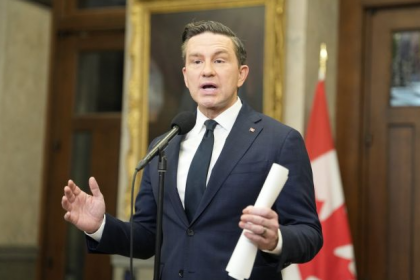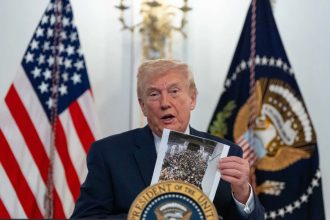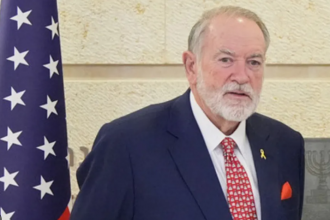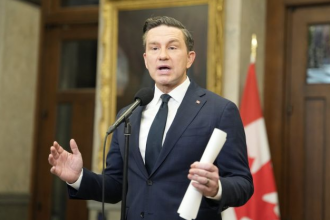DM, Aug 22, 2025 (by AMEEN IZZADEEN): While peace activists around the world rally and march to pressure their complicit-by-silence governments into doubling down on diplomatic efforts to end the ongoing genocide in the Gaza Strip, the Arab Middle East, except for Houthi-controlled parts of Yemen, is as good as dead. Ironically, the region’s loudest ‘stop-genocide’ cry comes not from Arabs, but from Israeli civil society activists.
What has happened to the Arabs? When fellow Arab Palestinians are being annihilated in a live-streamed genocide, why is the Arab world silent? Silence is certainly not a virtue when it emboldens wrongdoers to continue injustice and oppression. When more than 62,000 people—including 19,000 children—have been killed in the past 22 months, and children are reduced to skeletons draped in fleshless skin, Arab leaders’ condemnations appear merely perfunctory, if not appallingly farcical—however well-meaning they claim to be.
Like bubbles from a straw, condemnations come a dime a dozen—but like bubbles, no sooner are they issued than they burst; they are not meant to make a difference.
Last Friday, peace activists and civil society members gathered by the thousands in Colombo to hold a peace march and rally in solidarity with Palestinians suffering in the Gaza Strip—echoing the spirit and resolve of similar rallies held across the globe. But was there a rally in the Middle Eastern countries that matter—Egypt, Jordan, and the Arab Gulf states?
True, it was touching to see kind Egyptians with aching hearts filling plastic bottles with flour and throwing them into the Mediterranean Sea, hoping they would reach the shores of Gaza. But why is such humanitarianism not reflected at the leadership level? Come what may, for the greater cause of humanity, Egypt’s president, Abdel Fattah el-Sisi, can use the country’s military power to break the siege on Gaza—so that the thousands of food-aid trucks stuck on the Egyptian side of the border can move in and save lives. Why is he not doing it? Why is he cracking down on global activists willing to brave death in their effort to take food to starving Gazans?
The last time an Egyptian leader stood up to Israeli tyranny and oppression was President Muhammad Morsi—a democratically elected leader who emerged from the 2011 Arab Spring. When Israel planned to attack Gaza, President Morsi sent a senior minister and other officials to Gaza in a courageous diplomatic act that conveyed the message, “Only over our dead bodies can Israel attack Gaza.” No wonder Morsi was ousted in an Israeli-American-funded counter-revolution, backed by the Egyptian military and deep state. After all, the Zionist and imperial West’s rulebook says, “Don’t leave room for a courageous leader to emerge from the Arab world.”
The Zionist-imperialist cabal has successfully ensured that there will be no one like Muhammad Ali, Salahuddin (Saladin), Ahmed Urabi Pasha, or Saad Zaghloul—no more Gamal Abdel Nasser, who, together with Muhammad Naguib, led the Free Officers Movement to topple the monarchy, nationalise the Suez Canal, and emerge as a global anti-imperialist voice and a leading figure in the Non-Aligned Movement.
Egypt remains a major political voice in the Middle East, though it is economically weak and militarily too limited to challenge Israel in direct conflict. Moreover, the 1979 Egypt–Israel peace treaty prevents Egypt from mobilising troops along the Gaza border. Virtually reduced to a defeatist state, Egypt has instead taken on a diplomatic role—alongside Qatar—in brokering ceasefire deals, a process Israel often uses to manipulate global opinion.
In hindsight, it appears that Israel and the United States, which provides $1.3 billion in military aid to Egypt annually, have effectively bought Egypt’s compliance. Egypt, the Arab world’s most populous nation, with 109 million people—11 times Israel’s population—should have long withdrawn from the 1979 Camp David treaty, given Israel’s failure to uphold its side of the agreement: the establishment of a sovereign Palestinian state. Former US President Jimmy Carter expressed regret over Israel’s disregard for the fundamental clauses of the Camp David accord, which he had facilitated as an honest broker.
What more proof does one need of Egypt’s complicity than the pressure it exerted on Al Azhar University—the oldest continuously operating university in the world—to retract a powerful, truth-telling statement? The university’s July 22 declaration accused Israel of committing genocide and deliberately starving Palestinians and warned that any state or actor supporting Israel—whether through weapons, political cover, or rhetorical support—would be held accountable by divine justice. It added, “Anyone who provides this entity (Israel) with weapons, supports it through political resolutions, or offers hypocritical words of encouragement is a partner in this genocide.”
No wonder the Al Azhar statement hurt. The university was asked to retract the statement, with Egyptian authorities warning that the statement could derail sensitive negotiations over humanitarian aid into Gaza.
The sickness afflicting Egypt’s leadership is also evident in the policies of other Arab states. In some of these countries, “Gaza” and “Palestine” have become prohibited words. Several Arab states allow Israel to freely use their airspace and cooperate with the Zionist state in sharing intelligence. While propping up Israel’s economy, Arab and Muslim states maintain flourishing trade and defence ties. Egypt recently signed a record-breaking US$35 billion natural gas deal with genocide-committing Israel—the largest export agreement in the history of the Zionist state. Jordan supported Israel by shooting down Iranian drones during the 13-day Israel–Iran war in June, rather than remaining neutral, at least as a form of penance for its failure to protect the Palestinians. Perhaps, national interest supersedes humanity’s interest and Islam’s commands.
The Arab states’ inability to diplomatically and militarily stop Israel’s atrocities in Gaza only adds to the growing criticism—with some accusing them of being Arab Zionists and Muslim Zionists.
Since the end of World War I, the Arab world has been blighted by a dearth of brave leaders. The memory of Libyan revolutionary Omar al-Mukhthar—the Lion of the Desert—no longer inspires the Arab people. His famous last words before his execution by the Italian occupation forces—“We don’t surrender; we win or die”—are no longer quoted in Arab political literature. Why speak of Islamic greats like Ali Ibn Abi Talib, Khaled Ibn Walid, and Abu Obeida when even Quranic commandments cannot instil in today’s leaders a fear of accountability before God—or compel them to protect the Palestinians?
Perhaps those Arab leaders, whose diplomatic and military inertia is painfully evident, have an answer. They may say we know something those perplexed by Arab silence do not. Israel’s ultimate goal is Eretz Israel, or Greater Israel, stretching from the Nile in Egypt to the Euphrates in Iraq—a vision publicly endorsed two weeks ago when the Israeli Prime Minister, during an interview with a media outlet, openly admitted it. This prompted Saudi Arabia and the Arab League to issue strong condemnations, which the Israeli Prime Minister ignored. Arab nations perhaps fear that military involvement in the Gaza conflict, in support of the Palestinians, may give Israel the excuse it seeks to occupy more Arab lands and annex them into Eretz Israel. Their stance seems to suggest that, for the greater survival of the Arab world, Palestinians must become the sacrificial lamb—and Israel may annex Gaza and the West Bank.







